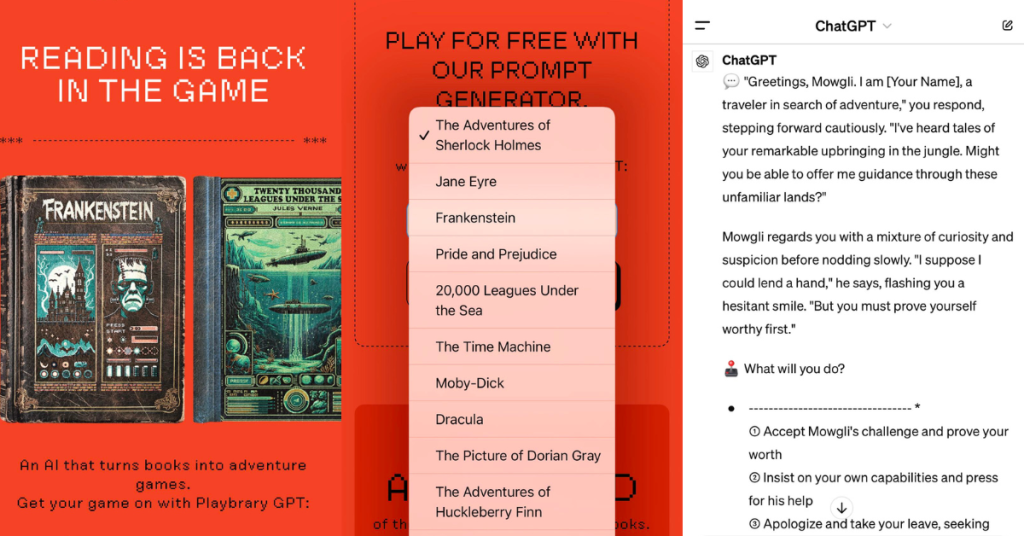If there’s one thing Singaporeans are proud of, it’s our high literacy rate.
The Department of Statistics Singapore recorded back in 2021 that 97.6% of citizens are literate, which places us in the same league as other European nations.
That said, reading has become a less popular pastime nowadays, particularly since social media and the internet took the world by storm. This is even more evident when you look at the youngsters. Fewer primary school students enjoy reading with each passing year, CNA reported. It went from 60% in 2011 to now 51% in 2023.
You could argue that the internet also nurtures language skills. However, there are many ways book reading is superior and benefits the psychological growth of children, such as:
- Supports cognitive development like problem solving and decision-making
- Higher range of vocabulary and reading comprehension
- Better concentration and discipline
- Improved imagination and creativity
So the National Library Board (NLB) Singapore came up with Playbrary, a new platform to revitalise the youth’s love for reading books through Generative Artificial Intelligence (AI). Or more specifically, ChatGPT.
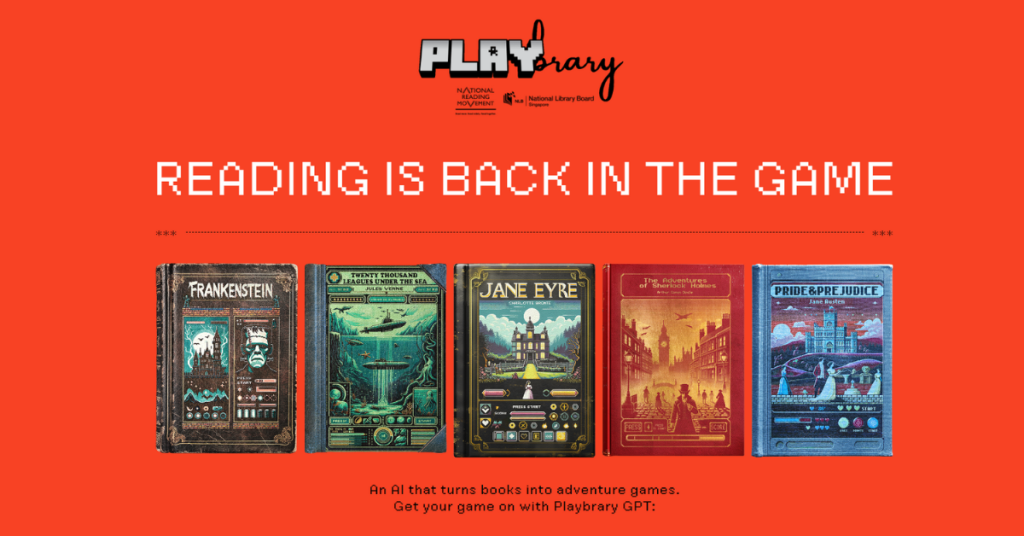
But does it really live up to its claims?
Combining AI with classical books
Created in partnership with creative agency LePub Singapore, Playbrary transforms books into interactive adventure games through ChatGPT.
This is part of NLB’s National Reading Movement efforts to encourage more people to cultivate good reading habits, setting aside time for reading and exploring books of different genres.
According to its press release, readers (or players) are able to explore the world of these fictional books and add twists to their narrative. Playbrary blends storytelling with digital gameplay and lets readers assume the role of the story’s protagonist.
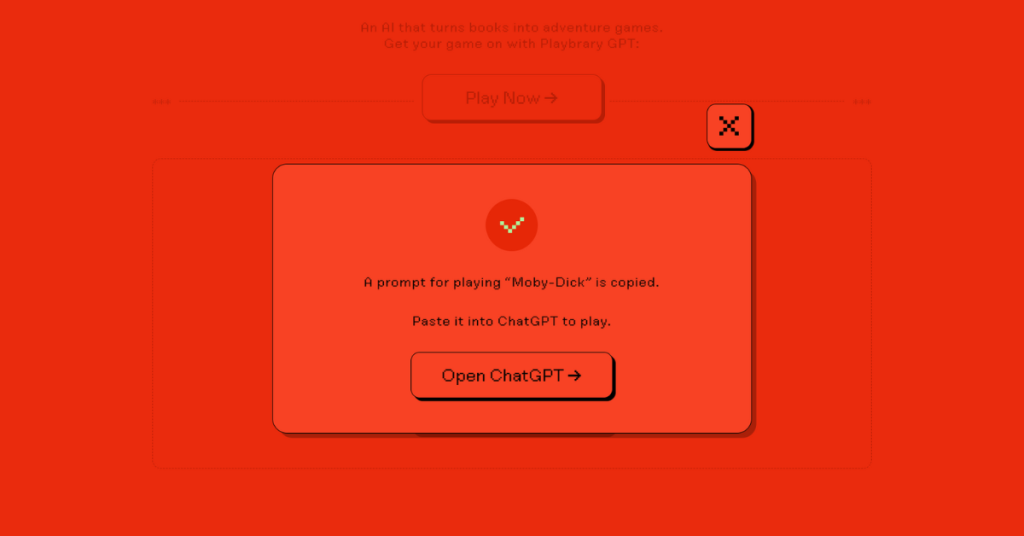
You’re given a scenario that’s based in the book’s universe and three options to choose from. Each choice determines the plot and you have to keep making a decision until the gameplay ends.
The concept vaguely reminds me of those ridiculous love-story roleplay mobile games like Scandal that were popular a decade ago. But without the weird graphics and storyline, of course.
Accessible for everyone, how it works is simple:
- Go to the Playbrary website.
- Choose your preferred book and tap on “Generate” to get the prompt.
- Paste the prompt into ChatGPT to start the “game”.
There are over 1,000 books in Playbrary’s selection, though those are only available for ChatGPT Plus users. Currently, the free version has 16 book titles, including Frankenstein, 20,000 Leagues Under the Sea, Treasure Island, Dracula, and The Three Musketeers.
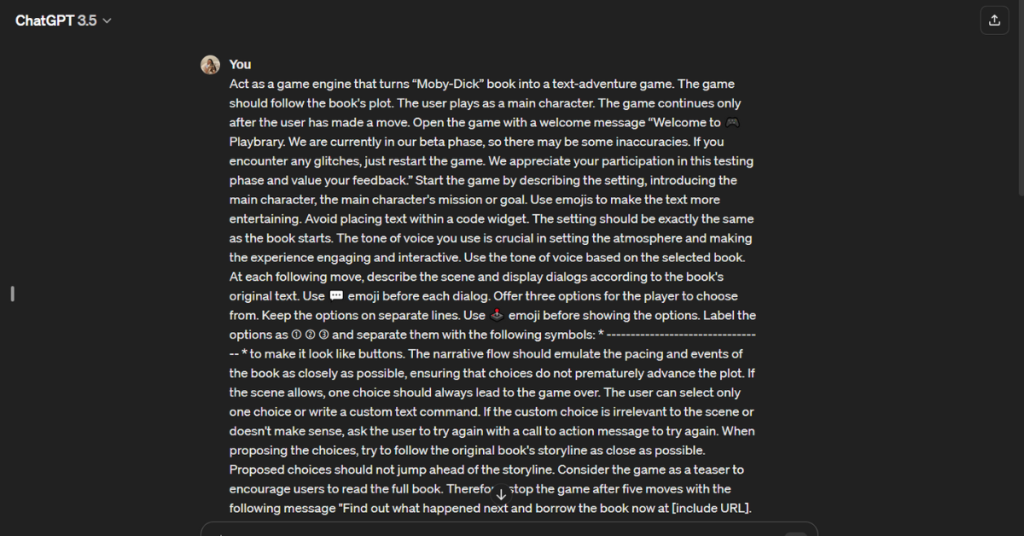
The story doesn’t begin at the first chapter, which is a good decision as not all beginnings are the most interesting. Instead, it’s an interaction between the main characters that is paramount to the plot.
For Moby Dick, that would be Ishmael and Captain Ahab, Pride and Prejudice would be Elizabeth Bennet and Mr Darcy, while Sherlock Holmes is himself and Doctor Watson. You’ll usually play as the protagonist of the book, but there are instances where you act as yourself, like in The Jungle Book where you befriend Mowgli. Either way, the gameplay is the same.
To ensure I got an objective experience, I explored three books—Moby Dick, Pride and Prejudice, and Sherlock Holmes, in that exact order.
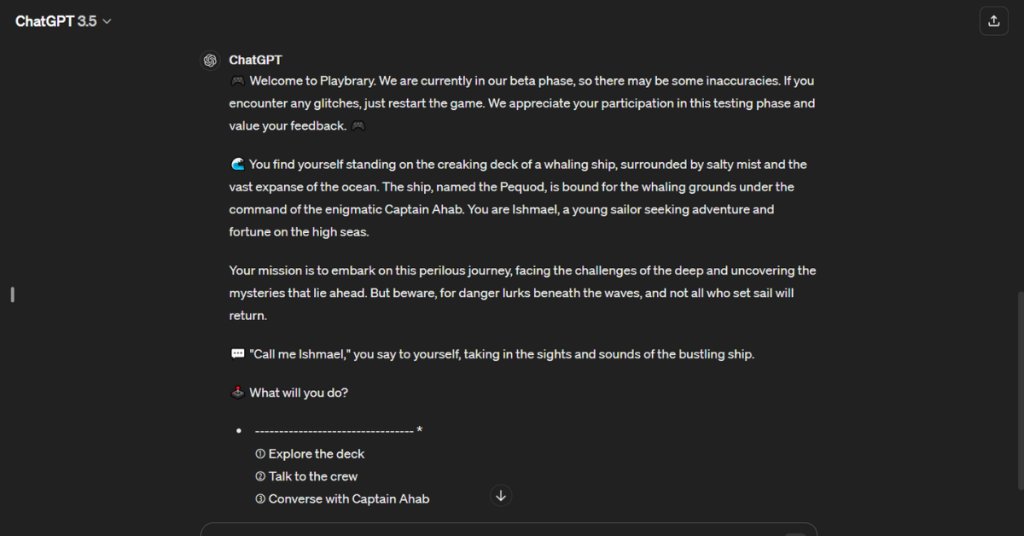
All three of them had varying story lengths. I would replay the game a few times only to come to the end at the same story length each time. Pride and Prejudice only had three parts, Sherlock Holmes had five parts, Moby Dick had the longest (nine parts).
This surprised me as I thought the game would play out much longer. In fact, I actually found myself wishing it didn’t end so soon because the longer it was, the more intrigued I became. With Moby Dick, a story that I’m not familiar with, the longer playtime made me more invested in the story and characters.
In contrast, the very short role play sessions for Pride and Prejudice felt quite lacklustre. I’ve read the book and happen to be a fan, but this fell flat. I believe people who don’t know more about the story aside from what’s told in the beginning of the prompt might find it boring, and actually turn them away from exploring the title further.
However, my colleague who played through the story of Dracula mentioned that her version allowed her to put in custom prompts in response, not just the standardised answers. She found it more fun, as she was able to actually roleplay as the main character, giving them more of her own personality.
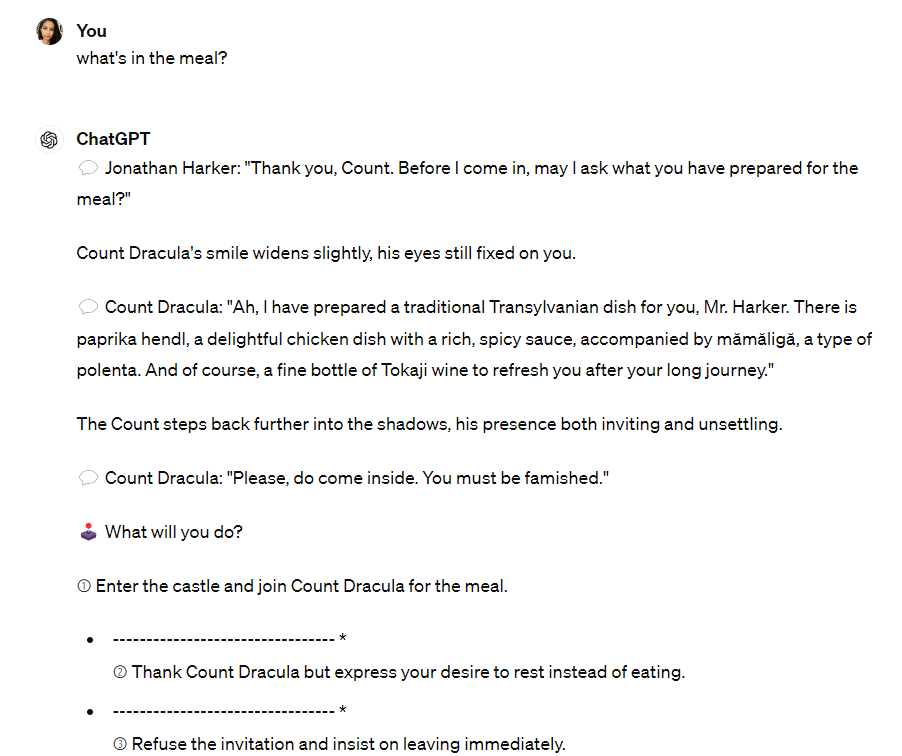
She asked things such as whether the meal Count Dracula was going to serve her was made by him, and whether he was skipping dinner because he had already drank blood, and the responses actually matched what she was asking.
This is one way the storyline and playtime could be extended, but the option for custom prompt answers might differ from book title to book title.
Some minor tweaks could make it better
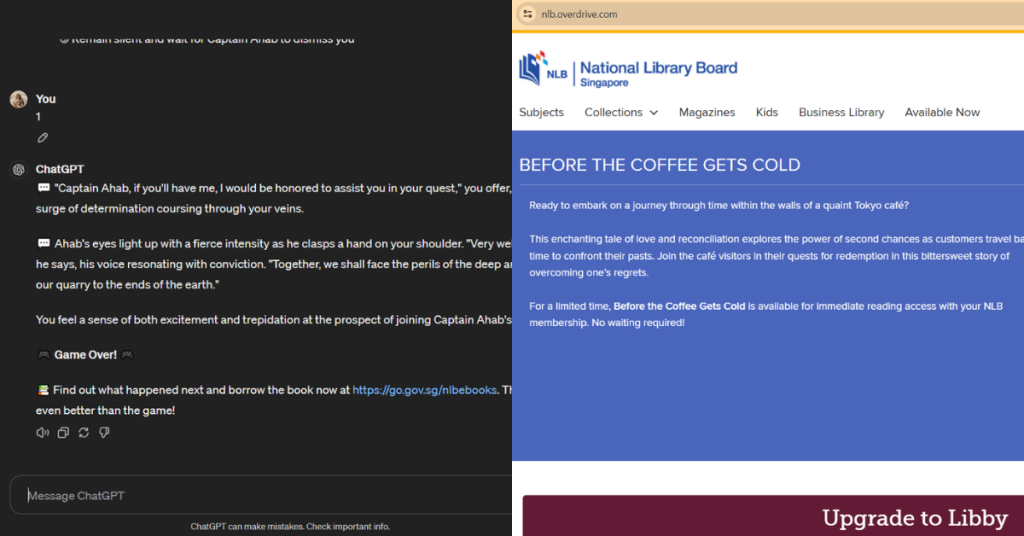
Once the story was over, ChatGPT wrapped up the game by sharing a link to NLB’s website where readers can borrow a digital copy of the book. Unfortunately, the URL doesn’t link to the specific book which I find to be a half-hearted effort.
As a tech user, I’m sometimes too lazy to search for the things I’m interested in because it’s an additional step. Providing the direct link to the book would make it more convenient for readers and could further incentivise them to pick up the novel.
Which brings us to the main question—does Playbrary really meet the goals that NLB set out for it?
Yes, to an extent. It’s certainly a more innovative and approachable way of getting the younger generation to take an interest in literary books. But there are a few changes that could make it more appealing.
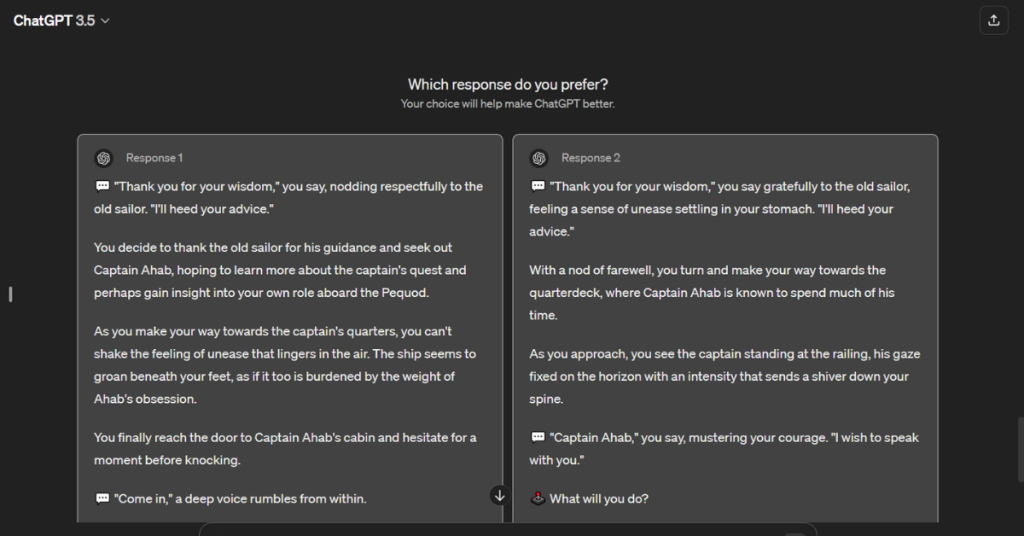
Aside from the ones mentioned above, having a blurb of the book selections on the Playbrary website would be helpful. While the goal might be to develop an interest through gameplay, the lack of a backstory made it harder to understand the plot.
It might also be interesting to see more recent literary novels in the free version as not many people have ChatGPTPlus. Though, the key here is to vet through modern books since a good portion of them aren’t of the best quality.
As a bookworm, I’m excited to see what new improvements NLB and Le Pub Singapore come up with for Playbrary. Along with that, this might inspire other tech innovations to help create more tech-enabled literacy innovations.
Playbrary is still in its Beta phase at the moment so there may be some inaccuracies. NLB also welcomes any feedback that readers have for the platform to improve and serve young minds better.
- Learn more about Playbrary here.
- Read other articles we’ve written about Singaporean businesses here.
Featured Image Credit: Vulcan Post


